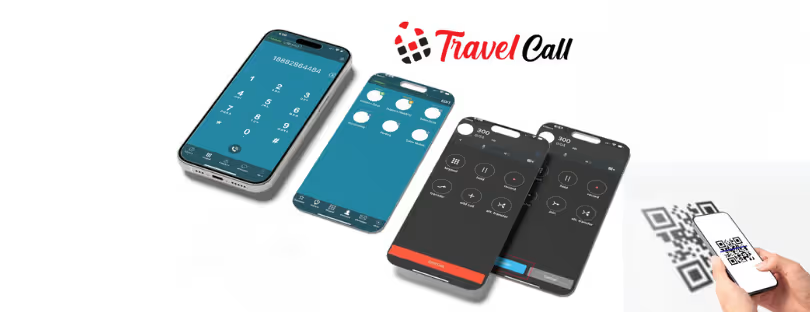
One fifth of British Tourists Prefer Home Holidays to Save on Roaming Fees
Mobile phones are ubiquitous, serving as our primary means of communication, information access, and entertainment. They facilitate instant connectivity through calls, texts, and social media, keeping us linked to our personal and professional networks. Additionally, smartphones provide access to the internet, enabling us to browse, shop, and manage our finances on the go. Even when we are in roaming! Save on Roaming Fees
With applications for almost every conceivable need, mobile phones have transformed how we live, work, and interact with the world.
Role of Mobile Phones in Travel:
- Navigation and Transportation: Mobile phones equipped with GPS and mapping apps like Google Maps or Waze are vital for navigating unfamiliar terrains, finding attractions, and even locating nearby restaurants and services. Ride-sharing apps such as Uber and Lyft further ease the burden of transportation in foreign locales.
- Accommodation and Booking: Travelers use their phones to book flights, hotels, and rental cars through platforms like Expedia, Airbnb, and Booking.com. Mobile apps for airlines and hotels also allow for easy check-ins, boarding passes, and room access.
- Communication: Staying in touch with family, friends, and work is seamless with mobile phones. Apps like WhatsApp, Skype, and Zoom enable free or low-cost international calls and video chats, ensuring constant connectivity regardless of location.
- Financial Transactions: Mobile banking and payment apps such as PayPal, Venmo, and Apple Pay facilitate secure financial transactions, currency conversions, and expense tracking while abroad.
- Information and Entertainment: Smartphones are essential for accessing travel guides, weather updates, and local news. They also provide entertainment through streaming services, games, and e-books, making long journeys more enjoyable.
- Safety and Emergency: Mobile phones can be lifesavers in emergencies, allowing travelers to quickly contact local authorities, healthcare services, or their country’s embassy. Emergency apps can provide vital information and assistance in critical situations.
Given these myriad uses, it’s no surprise that mobile phones have become an integral part of travel planning and execution.
One-fifth of Brits holiday at home to avoid roaming charges
With a quarter of travellers using their phones to browse and update their feeds, while over half of respondents admit they can’t imagine going on holiday without their phones, it’s clear that staying connected is a priority. Save on Roaming Fees
James McQuillan, UK & Ireland Country Manager at Lyca Mobile, said: ‘It is outrageous that, at £118, our very British holiday phone bills might now cost as much as our flights. Holidaymakers should not have to worry about connectivity coming at a cost.’
Here are 6 tips to help you avoid or reduce roaming costs when traveling internationally:
1. Use Wi-Fi Whenever Possible:
Connect to Wi-Fi networks for internet access instead of using mobile data. Many hotels, cafes, and public spaces offer free Wi-Fi. Make sure to use a secure network to protect your data.
2. Turn Off Data Roaming:
Disable data roaming on your phone to prevent automatic connections to cellular networks abroad. This setting can usually be found in the network or cellular settings of your device.
3. Get a Local SIM Card:
Consider buying a local SIM card in the country you’re visiting. This allows you to use a local phone number and data plan, often at much lower rates compared to international roaming charges from your home carrier.
4. Use Messaging Apps with Wi-Fi:
Use messaging apps like WhatsApp, Telegram, or iMessage that use Wi-Fi for texting and calling instead of SMS or traditional voice calls. This avoids international calling and texting fees.
5. Check Your Carrier’s International Plans:
Before you travel, check with your mobile carrier about international roaming plans. Some carriers offer temporary international plans that may provide better rates for calls, texts, and data while abroad. It could be cheaper than standard roaming rates.
6. Consider Using eSIM Technology:
If your phone supports eSIM (embedded SIM), you can purchase and activate a local data plan digitally while traveling. This allows you to switch between different carriers without needing a physical SIM card, potentially offering more flexibility and often lower rates for data usage abroad. Save on Roaming Fees
By following these tips, you can significantly reduce the risk of high roaming costs while staying connected during your travels.










